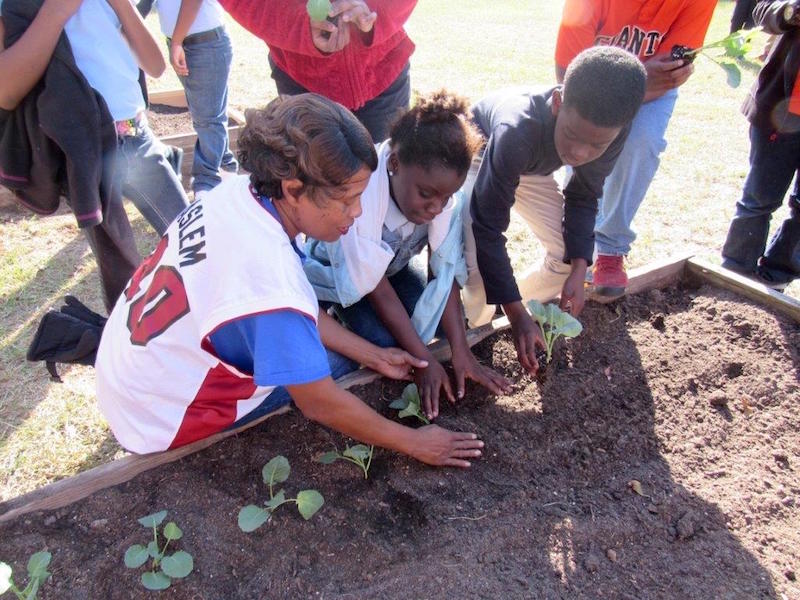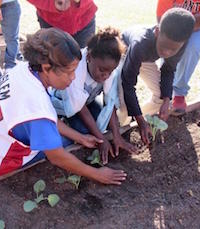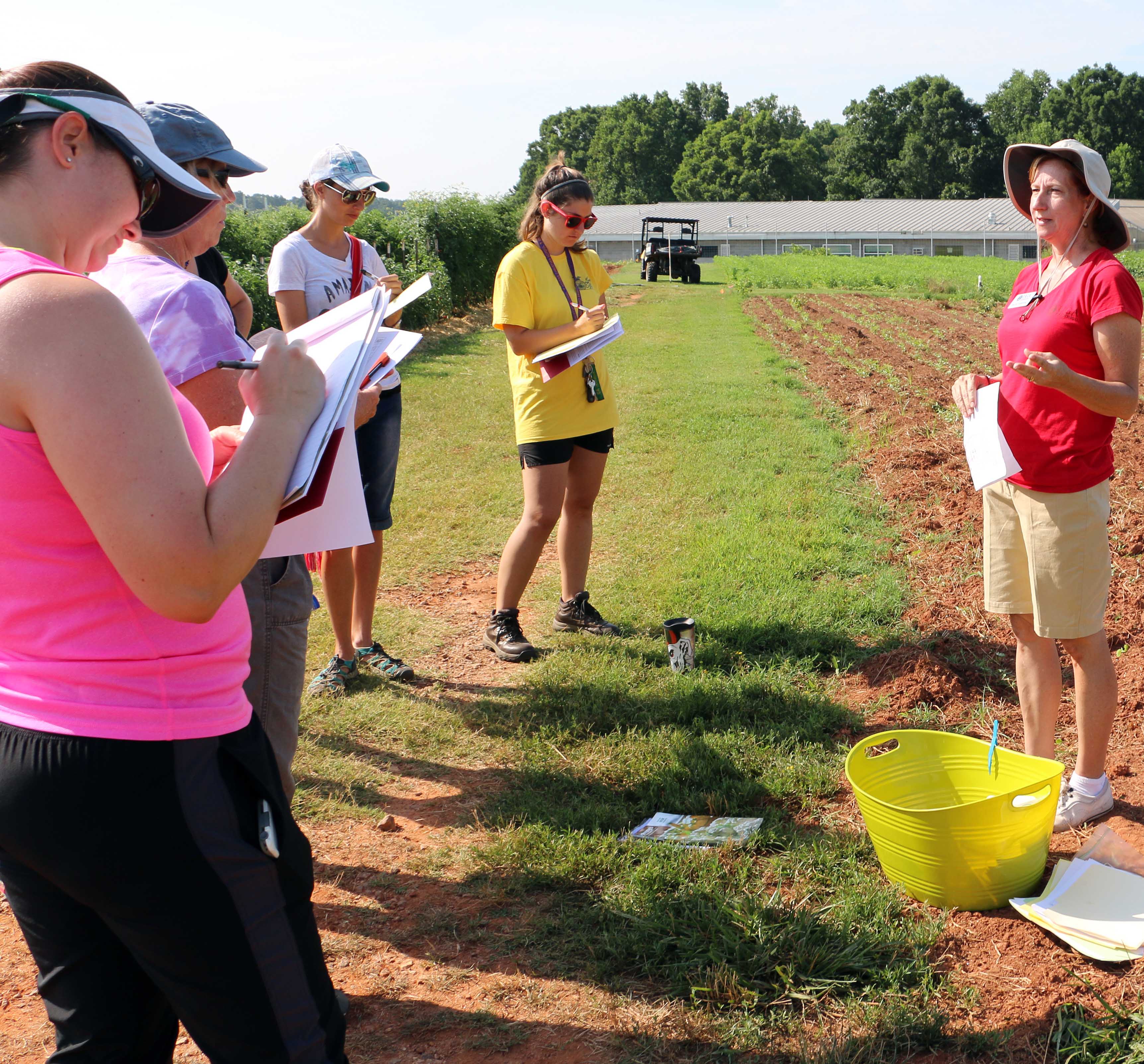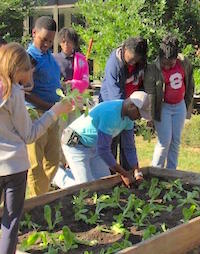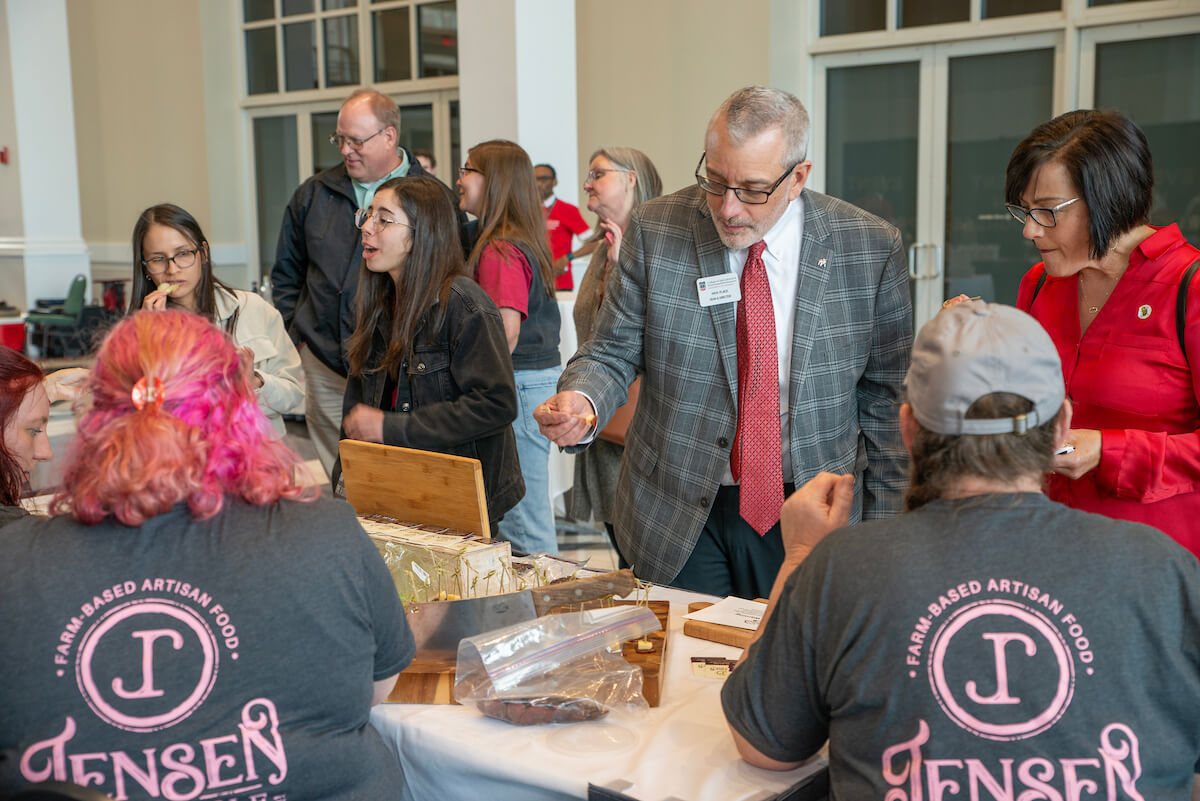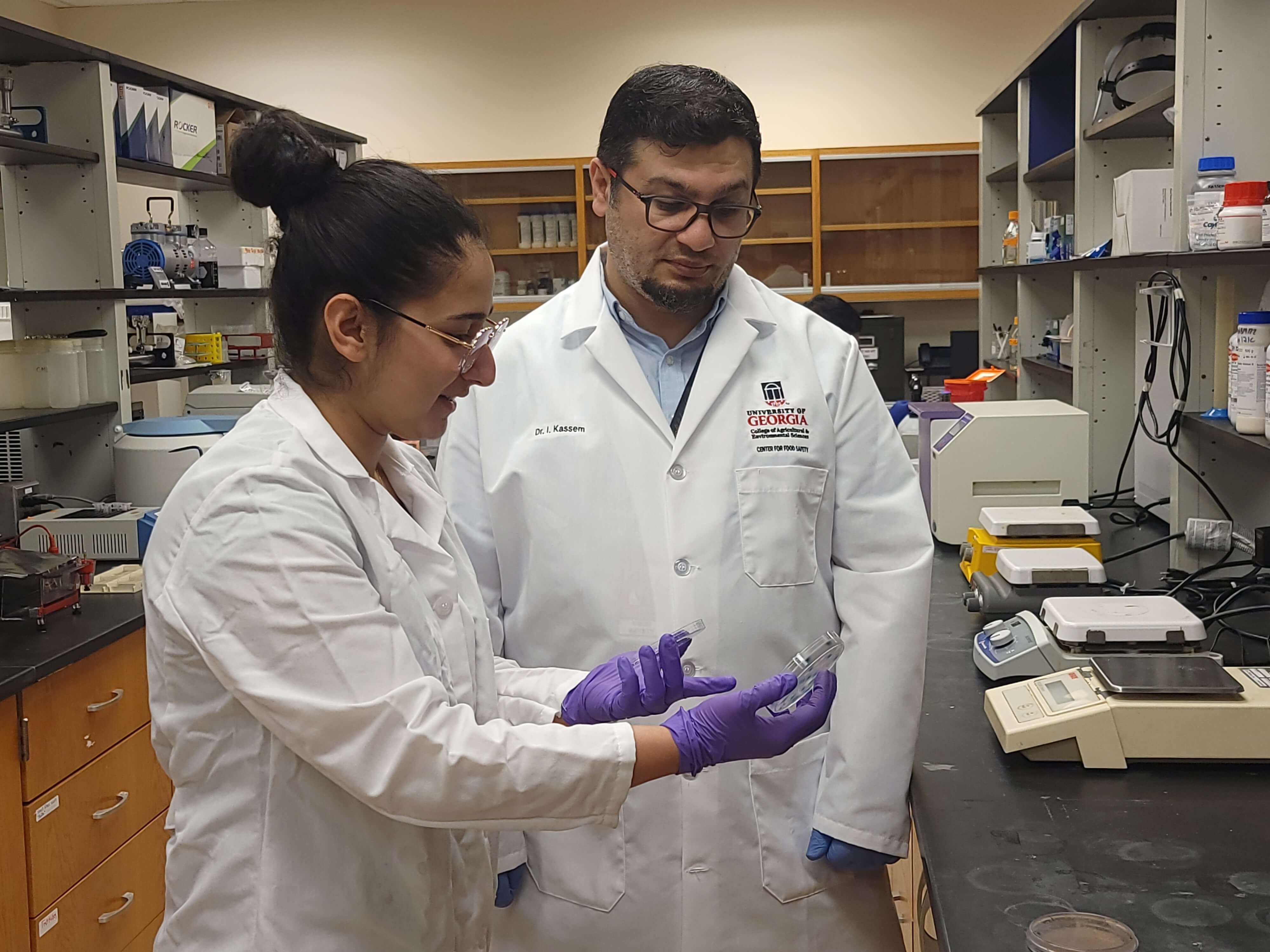The number of school gardens is on the rise as Georgia teachers search for engaging ways to educate students about their food.
School gardens are also gaining momentum because they help teachers meet science, technology, engineering, arts and mathematics (STEAM) education requirements, according to Becky Griffin, community and school garden coordinator for University of Georgia Cooperative Extension.
“You use a lot of division and recording to plant a garden, and some teachers have students grow their crops in geometric shapes,” Griffin said.
English teachers may have their students read a book and then plant the crops or flowers that the book mentions, Griffin said. History teachers have their students plant colonial gardens filled with crops that might’ve been on first President George Washington’s dinner table.
School gardens are an excellent educational tool, but they are also a lot of hard work. To be successful, the garden project has to be supported by the school board, teachers, parents and community leaders.
“If the garden is being planned and planted by just one teacher, it’s going to fail,” Griffin said.
In Dougherty County, Georgia, UGA Extension agent James Morgan has helped to establish gardens in 13 of the county’s 14 elementary schools. Morgan’s gardens have won Golden Radish Awards, an honor presented annually to schools where teachers and personnel are doing extraordinary work in terms of farm-to-school programs. The award is presented by the Georgia Department of Education, Georgia Department of Agriculture, Georgia Department of Public Health, Georgia Organics and UGA Extension. To date, Morgan’s gardens have earned two gold radishes, along with a silver and a bronze.
“These school gardens would not be successful if not for the buy-in from the principals and school liaisons,” Morgan said. “And the gardens wouldn’t be possible without the support of our teaching garden planning team.”
The planning team meets each fall to begin planning the gardens. Team members are then assigned to schools, where they meet with the principal and the school’s garden liaison.
“First, we have to see if weeding needs to be done, if wood for beds needs replacing or if soil needs to be added,” Morgan said. “The liaison then works with the kids or volunteers to weed the beds. During this time, we place an order for transplants and schedule soil drop-off and planting times.”
Each garden has seven raised beds where students grow lettuce, collards, kale, spinach, scallions and radishes.
After planting, the planning team and students monitor the school gardens throughout the growing season.
“In the event of cold weather, I have someone in the school nutrition office send out an email to all the liaisons letting them know how to protect the plants from cold weather,” Morgan said.
As the plants get close to maturity, Morgan visits the schools and shows the students when to harvest the radishes or how to harvest the leaves from the leafy vegetables so that the plant will continue to produce more leaves. When the students harvest their vegetables, the school cafeteria staff incorporates them into each school’s holiday lunch, he said.
Team member organizations include Southwest Georgia Master Gardener Extension Volunteers, UGA Extension, Phoebe Putney Memorial Hospital, Southwest Georgia Project, Dougherty County Farm Bureau, City of Albany Recreation and Parks Department, Dougherty County Child Nutrition Program, and Georgia Region V Soil and Water Conservation District.
To help Georgia teachers with school gardens, UGA Extension and the Georgia Center for Urban Agriculture offer training for teachers. At the training sessions, teachers learn about selecting crops that are in season during the school year, testing garden soil before planting, composting, attracting beneficial insects and controlling pests using a minimal amount of pesticides. Since 2015, 150 teachers have been trained at workshops held in Athens, Atlanta and Griffin, Georgia.
For more information on this program, visit ugaurbanag.com/gardens/teacher-training.

